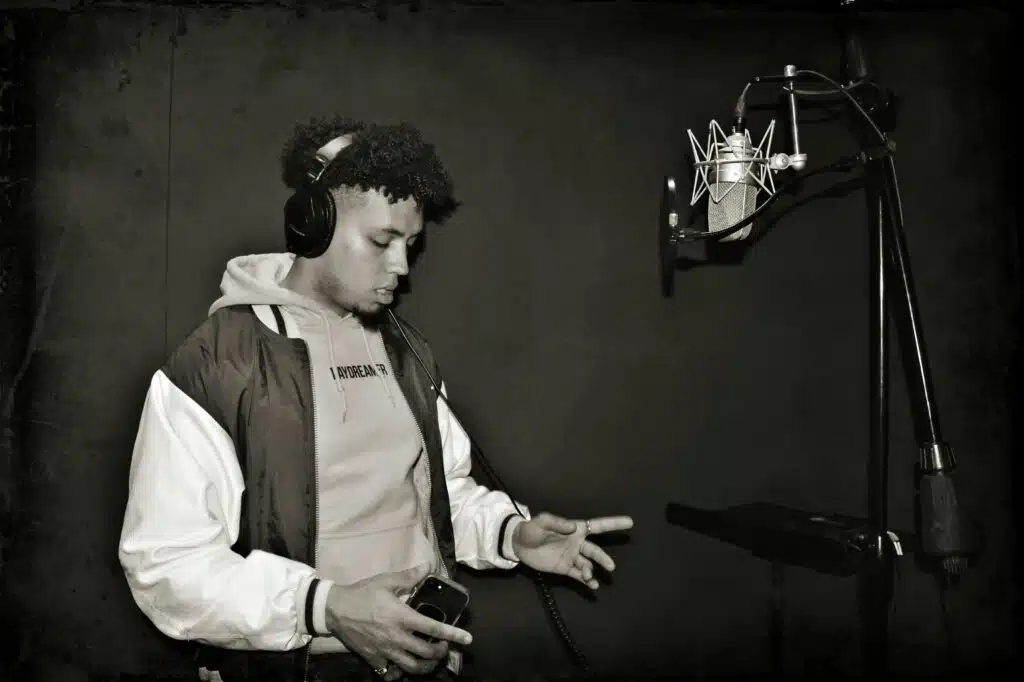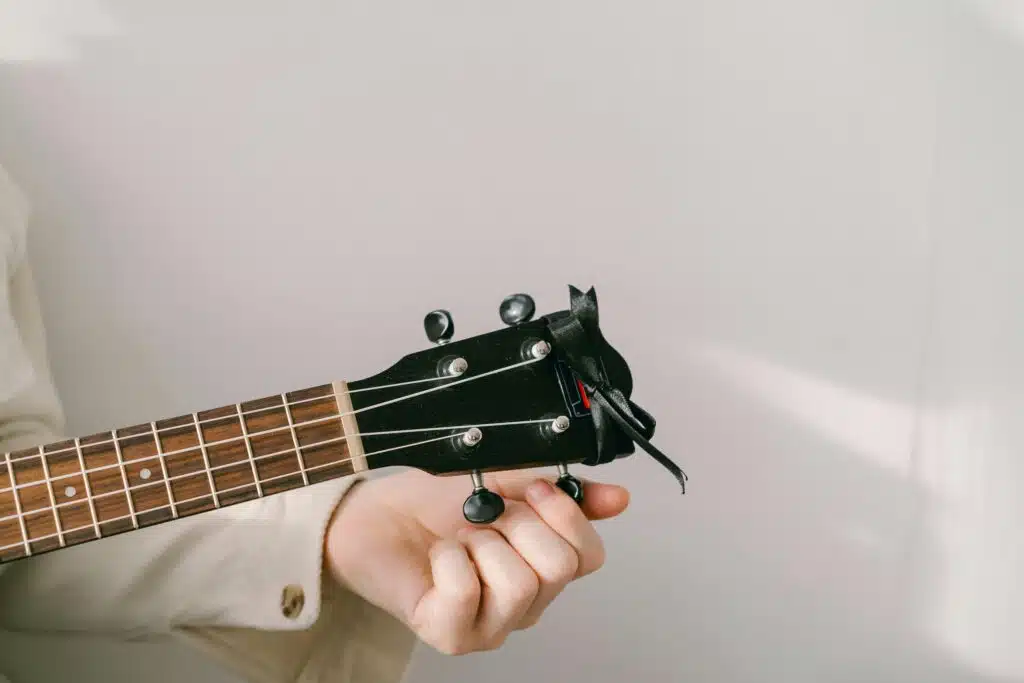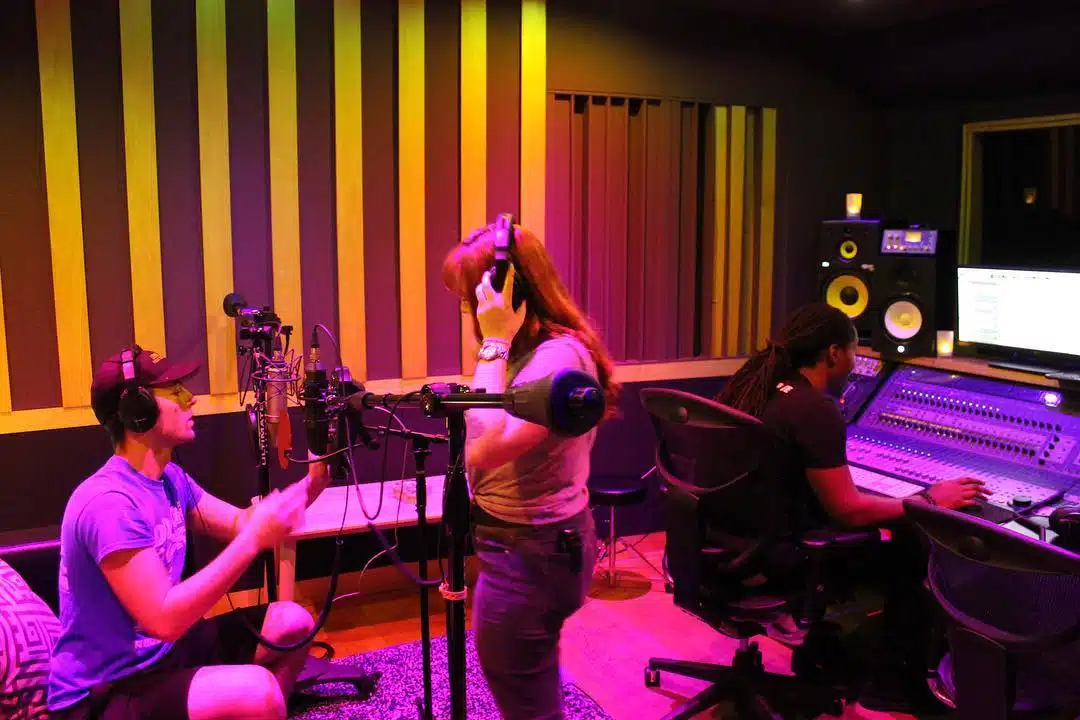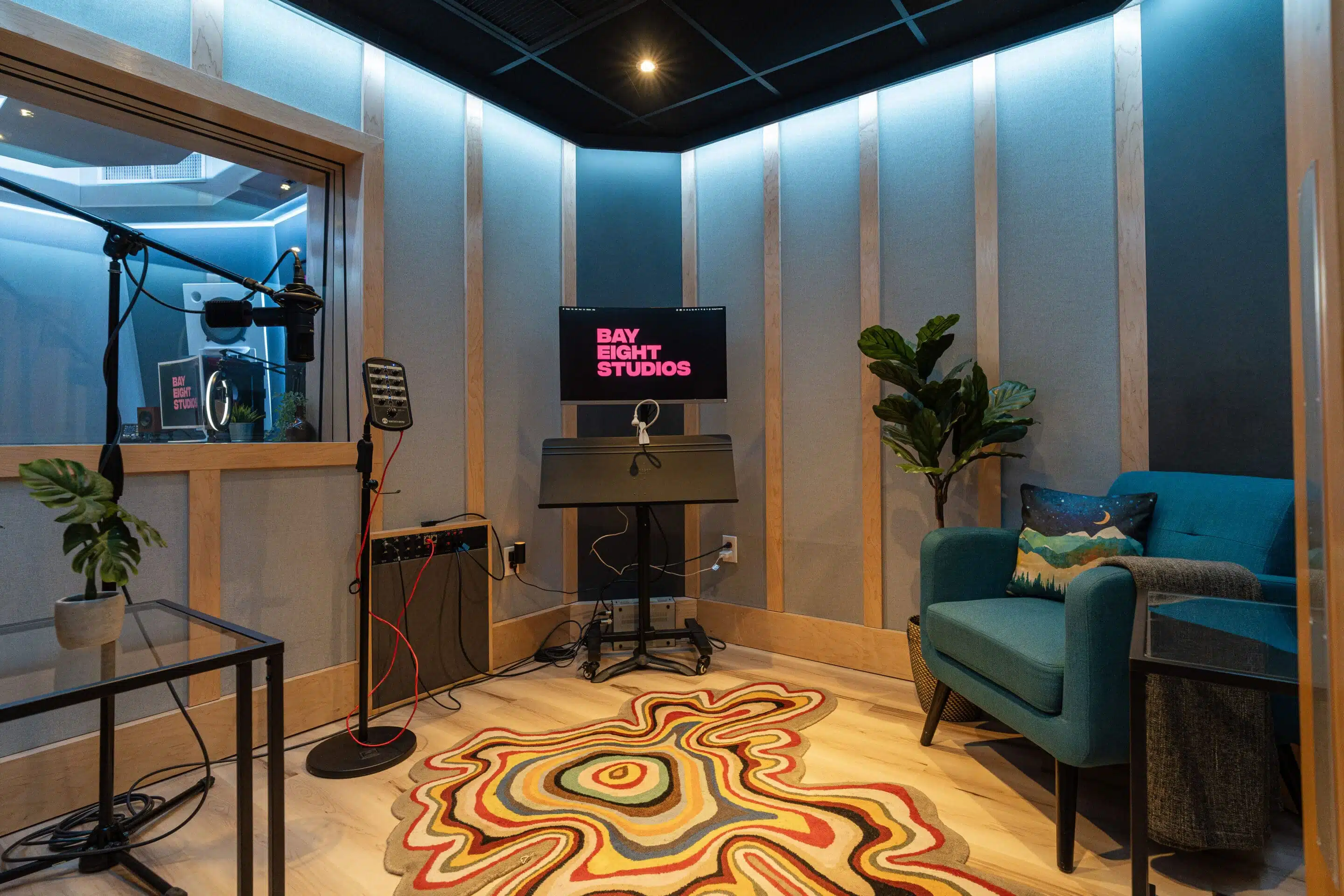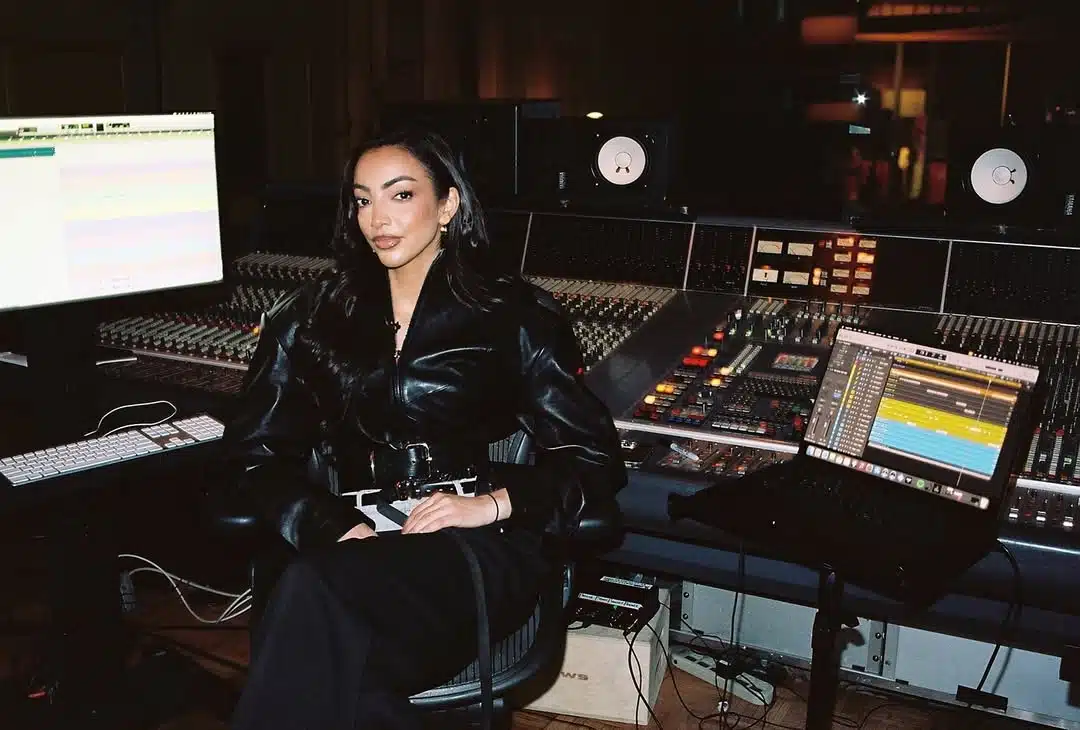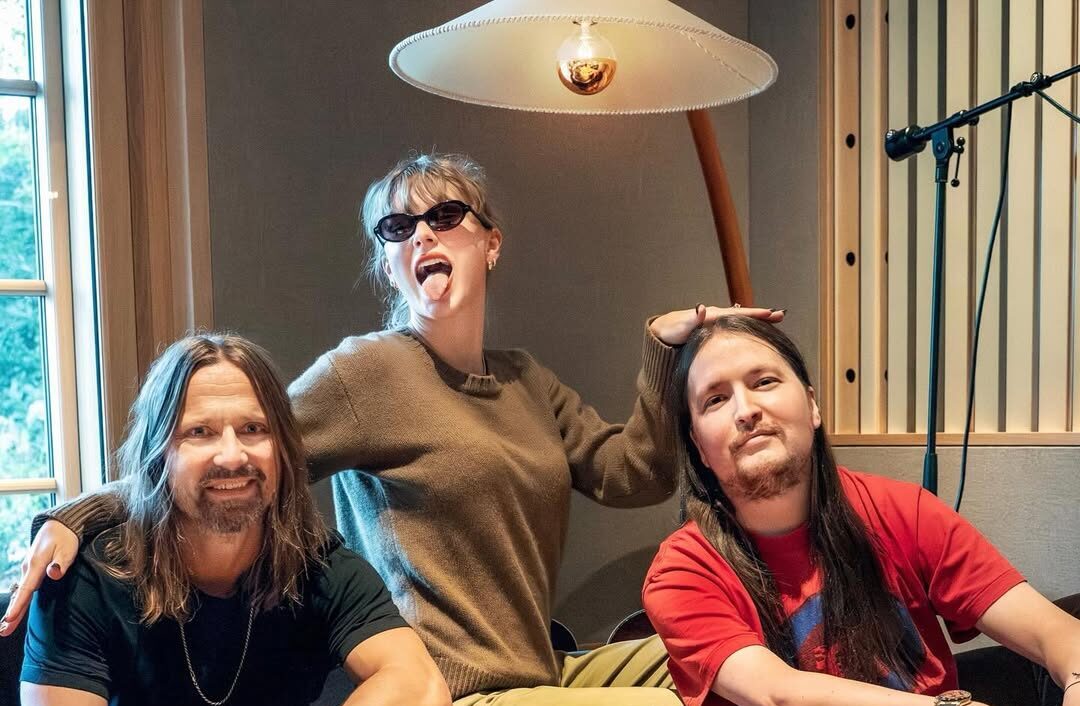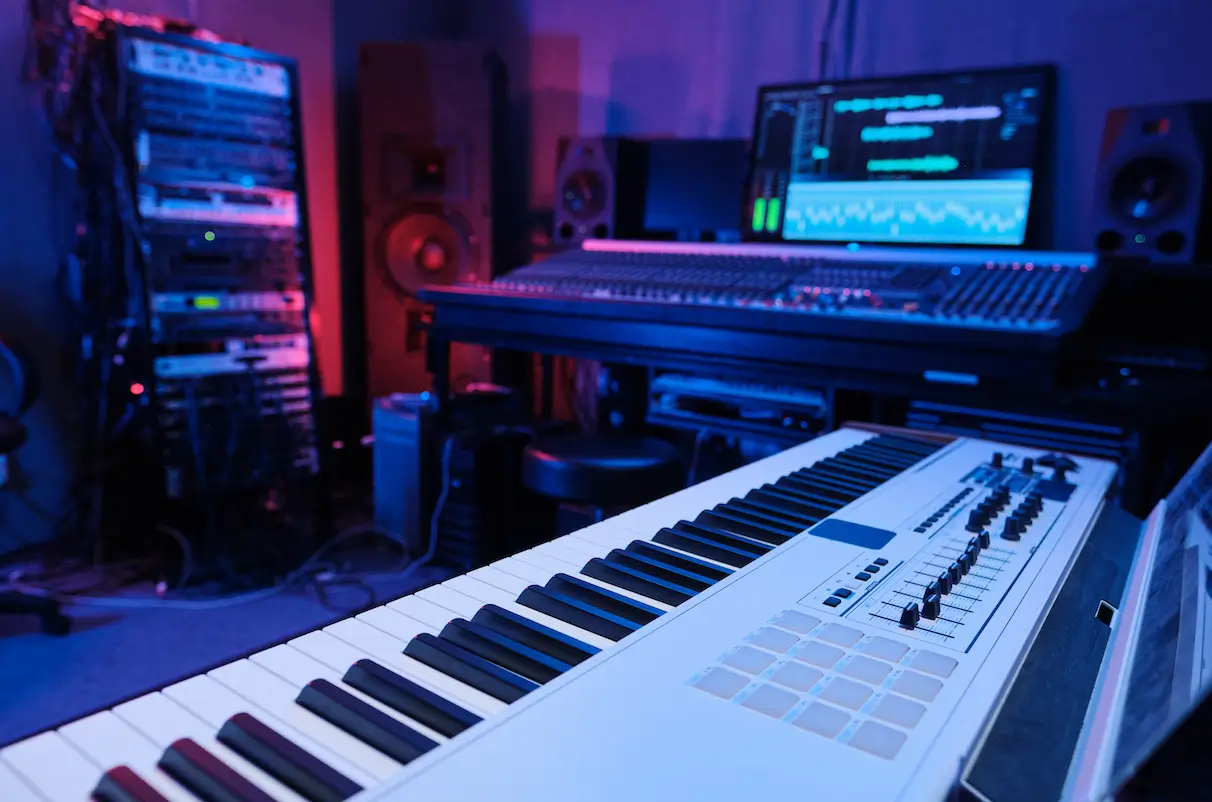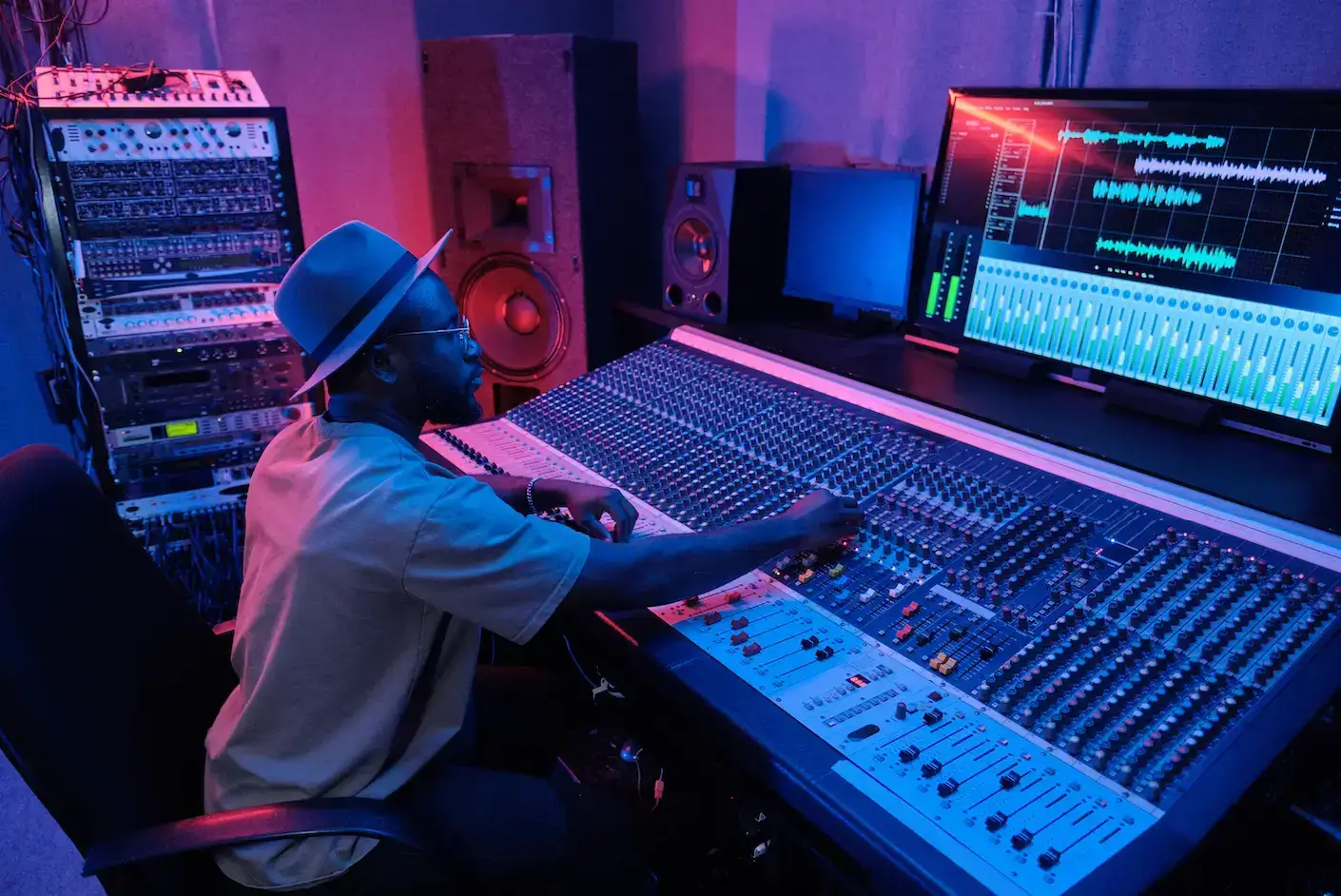Want to tour all of Bay Eight’s studios and even play your music here? We know music studios can be intimidating for artists early in their career. This is why Bay Eight offers hour-long studio tours. You can bring your instrument, test out our different rooms, and pester our staff with all of your questions about our studio. But first, here’s a detailed guide to the studio recording process.
We know that was a lot of information, so here is a checklist to help you remember:
-
-
- Stretch your budget by researching studios
- Practice before your session
- Work out your harmonies and ad-libs
- Tune your instruments
- Bring snacks and water
- Look at the cost and size of the available rooms
- Book 4 hours for your first session
- Put down a 50% deposit and pay the rest when you come in
- Arrive 15 minutes early on recording day
- Talk to your engineer
- Listen for time updates from your engineer
- Wait for an email with your music in WAV or MP3 format
- Book a mixing and mastering session
-
Before You Come In
Set yourself up for success by doing some research to find the best recording studio for your needs. There are many things to consider before choosing a studio, and it’s okay to take your time. Should we do a deep dive into how to pick a studio in a different article?
Budgeting
We won’t lie to you; studio time can get expensive. If you have the money, you are welcome to show up to the studio empty-handed. You can write, chat, and search for inspiration all while you’re in session, but it’s gonna cost you. Assuming you haven’t just won the lottery, you’ll want to rehearse before your session and have an idea of what you want to accomplish. This is the best way to make studio time affordable if your project is self-funded.
How to Book A Studio
These days, most recording studios that are open to the public have a website. The easiest way to book a studio is to do it online, the way we do pretty much everything these days. If you have questions before booking, you can likely call or email. You will be asked basic questions like your name, what day you want to come in, and how many hours you want to book. You can book a session at Bay Eight with this form, which allows you to specifiy your needs, including requesting a producer, songwriter, a Sony C800G, etc.
How to Make the Most of Studio Time
To ensure you make the best out of your studio time, you’ll need to do some prep work beforehand. Knowing what to expect will help you get all your ducks in a row.
Session Planning
It’s a good idea to set your goals before you come into the studio. The work you do before getting in the recording booth will also impact the success of your recording process. Decide what songs you’re planning to record and make sure you do extensive preparation. This includes:
Working out the harmonies:
In addition to learning lyrics and melody, you should consider all the elements of your recording. This includes harmonies, ad libs, and any backing vocals you want to record. These are all essential parts of your songs too! Of course, if you don’t feel confident working on these parts yourself, we are happy to help. Check out this example of a session with recording artist OG Camo featuring our engineer Jacob “Catalyst” Catalano, and our Studio Manager Jordan Leia working on vocal arrangements.
Tuning your instruments:
You’re paying for every minute of studio time. If you want to wait until studio time begins to do simple prep work like tuning your instruments, you’re flushing your hard-earned money down the toilet.
Bringing Snacks:
Although fun, the recording studio process can be long and tiring. For long sessions, it’s a good idea to bring snacks and water. This will help you keep your energy up and keep you from having to break for food. If you’re a Bay Eight client, there’s no need to worry; we have snacks and water for you. Just keep in mind this is not the case for all studios.
Deciding How Much Time to Book
Most studios have a minimum amount of time you can book. For example, between 2 pm & 2 am, we have a 4-hour minimum for bookings. While that is always our reccommended amount for your first session, you are welcome to book shorter sessions outside of these busier times. We’ve found four hours to be an ideal block of time to ensure you don’t feel rushed during your first session, while allowing you to wrap up before you’re too exhausted to do your best work. Be sure to inquire with your local studios for their specific policies.
Choosing Which Room to Book
We encourage either taking a virtual tour or visiting a studio in-person before you decide which room to book. At Bay Eight, we have three recording studios: the SSL Room, the Apollo Room, and the Whisper Room. Each of these studios has a different cost because of the differing equipment and room size. You can learn more about that here. Consider your budget and what specialized equipment you may need when choosing a room.
How to Pay
Most studios require you to put down a deposit before your session. Our deposit amount is 50%. The remaining balance is due upon arrival at the studio. This can be paid via Cash, Zelle, Cashapp, Credit Card, Apple Pay, or even Bitcoin. Major label clients can inquire about an invoicing option. Check out this article for more information on studio time costs in Miami.
Arriving at the Studio
When you arrive at your first session, you should expect a ‘getting to know you’ chat. Your engineer should already have set up.
The First Thing You Should Do
Talk to your engineer. Introduce yourself. They should set up the microphone for you and guide you through the studio recording process. Most likely, they will ask you questions about your music and have you play the song you want to work on. You can warmup, ask your questions, and do what you need to prep. Then, the recording process begins!
Time Keeping
Your engineer will help keep your session on time. Tell them your goals for your session, and they will help you achieve it. But remember, you are the client, and you should feel comfortable taking ownership of your session. For example, if you want to work on something different than what you originally planned, you can express that. Not communicating with the engineer will hurt the results of your production, so be sure to voice your questions and concerns. At Bay Eight, we close sessions 15 minutes early to ensure there is time to export and send your files. The engineers will notify you when it’s time to start wrapping up.
After Your Session
Just as the studio recording process begins before your session, it does not truly end until after. Here is what you should expect after leaving the studio:
How To Get Your Music
Your engineer is typically responsible for sending your music after your sessions. Bay Eight clients can expect to have MP3s or WAV files emailed to them via Gmail. Don’t hesitate to request a specific format. You can also request the session files if needed. For large files, we use WeTransfer. If you’ve never heard of it, don’t worry, it’s basically like Google Drive or Dropbox.
Mixing and Mastering
If you record at Bay Eight, you can be assured the recording you leave with will sound complete and radio-ready. We also offer dedicated mixing and mastering sessions for artists looking to fine-tune their recordings.
Conclusion:
While the recording studio process can feel intimidating, you immediately get a partner in the shape of an experienced engineer. They will be your guide as you work to get comfortable in the studio. They can help you through roadblocks like not having the musical language to vocalize what you want. In the beginning, some music artists are timid and passive when it comes to saying what they want out of their recording. As your confidence grows, you can feel free to express your ideas to your engineer. If you want to hear more reverb, tell them.
The engineer is there for you! They will be your go-to for any additional info you need about the recording process, so don’t feel like you need to know everything before booking a session.

